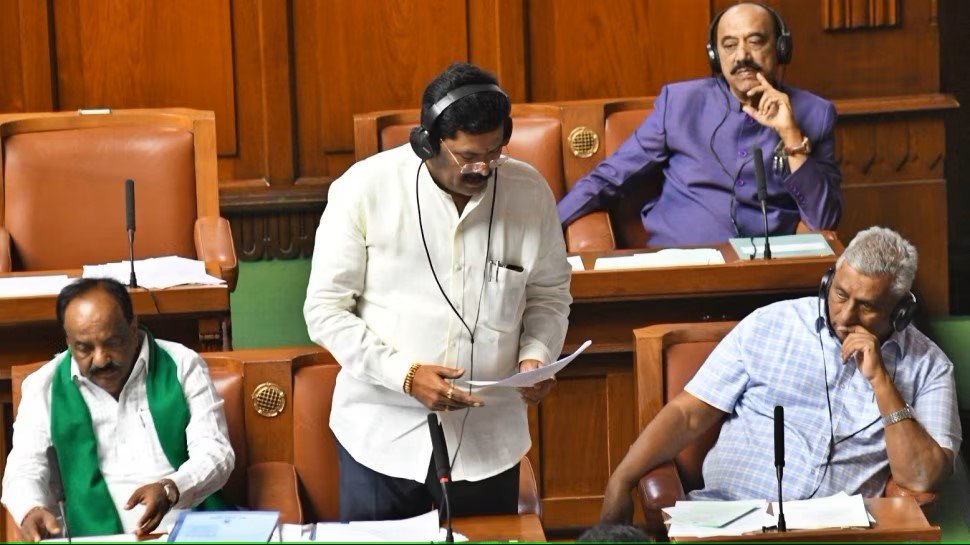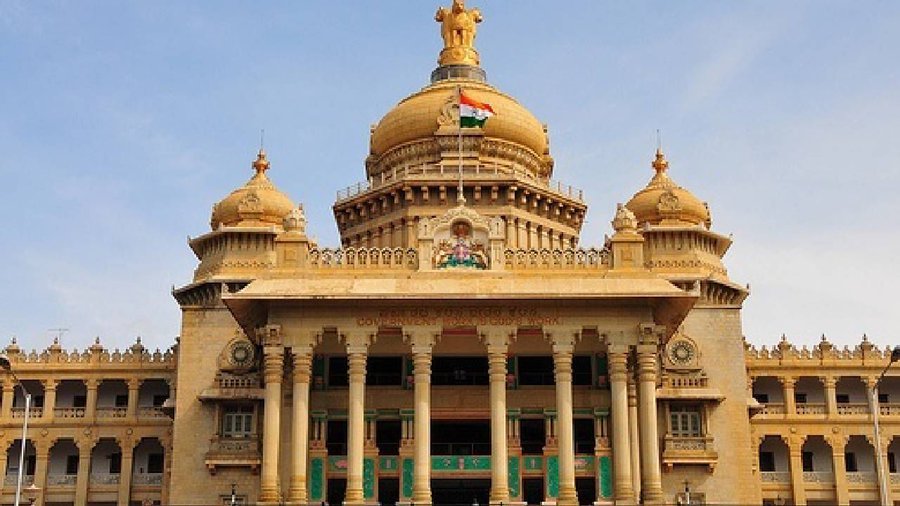Bengaluru: In a major move to preserve and promote the Kannada language and culture, the Karnataka Legislative Assembly on Thursday unanimously passed the Kannada Language Comprehensive Development (Amendment) Bill, 2024, by voice vote. The bill makes it mandatory for businesses and commercial establishments across the state to use Kannada on 60% of the space on their signboards.
What Does the Karnataka Bill Entail?
The wide-ranging bill covers various sectors such as commercial, industrial, and business establishments, trusts, counselling centers, hospitals, laboratories, amusement centers, and hotels functioning in Karnataka. To be more precise, it will be applicable to all establishments that operate with the approval and sanction of the state government or local authorities.

As per the bill, these establishments will now have to prominently display Kannada on at least 60% of the signboard space on their premises, including nameboards. The script used must be in standard Kannada letters.
Enforcement Mechanisms and Penalties
To enable strict enforcement, the bill sets up robust mechanisms. It proposes appointing the director of the Directorate of Kannada and Culture as a member, and the secretary of the Kannada Development Authority as the convener of a “State Level Committee”.
This high-level committee will serve as the main enforcement authority responsible for ensuring compliance across the state. Additionally, it provides for inserting rules on fines and penalties for violations in the legislation itself.
Special task forces will also be constituted in every district, comprising police and other government personnel. These teams will conduct inspections and crack down on violators.
A key part of the enforcement mechanism is a mobile application named ‘Kangavalu’ (meaning ‘valuing Kannada’) that is being specially designed to register complaints against non-compliant establishments.
Through this app, anyone noticing violation of the signboard rules can click a photo and upload it with location details of the establishment. The complaint will be auto-forwarded to the jurisdictional regional enforcement committee for taking suitable action.
Multiple complaints against a repeated offender will lead to higher penalties. The app is expected to encourage public participation in promoting usage of Kannada language.
Tough Penalties for Violations
The bill prescribes rather severe penalties for non-compliance – ranging from hefty fines for minor offences to outright cancellation of operating license for grave violations.
As per the provisions, establishments flouting the signboard norm for the first time will receive a notice seeking immediate corrective action within a stipulated deadline. In case of non-action, a fine amount will be imposed based on factors like scale of business, type of violation etc.

The penalty fees could go up to Rs. 25,000 for large businesses. Repeat offenders not paying the fine will face suspension of operating license for a certain period. However, grave violations can even attract direct cancellation of license and potential closure of the establishment.
The enforcement authorities can also file legal complaints against defaulters under relevant laws such as the Official Language Act, 1963. According to language activists, these strict measures are necessary to ensure proliferation of Kannada signboards across the state.
Establishments failing to abide by the law will face severe action – cancellations of their trade licenses, closure notices, and other penalties based on the nature and gravity of violation.
Triggered by Growing Demand to Promote Kannada
The bill was introduced in the Assembly on February 13 by Kannada and Culture Minister, Shivaraj Tangadagi. Experts see this as a victory for pro-Kannada groups and activists who have been demanding similar legislation for years.
In November 2022, a sudden removal of English signboards from shops in Bengaluru triggered major protests. Hundreds of activists staged demonstrations demanding prominence of the Kannada language on commercial signboards across the state.
Many experts, linguistic activists and even general citizens have welcomed the passage of the bill, calling it a positive step towards preserving and promoting regional culture. However, some concerns have also been raised by certain business groups and opposition leaders over potential legal challenges.
The bill will now be sent to the Governor, Thaawarchand Gehlot, for final approval before it becomes an enforceable law. It remains to be seen whether it can withstand judicial scrutiny over violations of constitutional rights.
Read about India’s Coal Imports See Steep Rise of 27%, Sparking Concerns, here.











